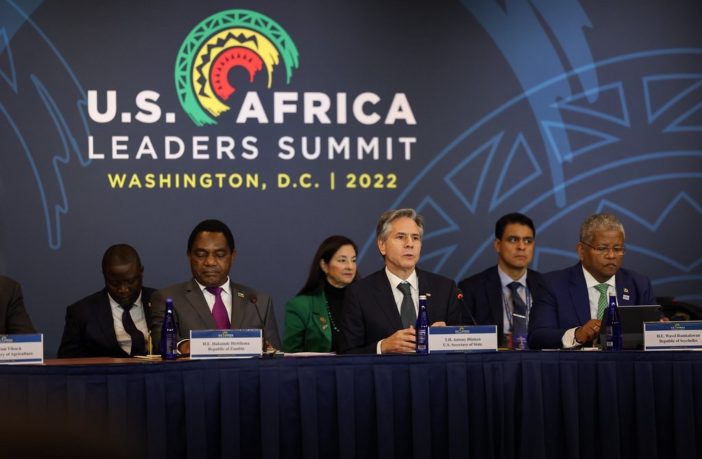The Biden Administration kicked off its U.S.-Africa Leaders Summit at the Walter E. Washington Convention Center in the nation’s capital for some 49 African heads of State and the African Union (AU) Chair Commissioner from Dec. 13 to Dec. 15. This is the first summit since 2014 that focuses on strengthening partnerships between the U.S. and advancing their shared business and economic development priorities. Its outcomes are to enhance the participating nations’ long-term relationships, and leverage U.S. public and private sector resources to support and empower African citizens, institutions, and nations.
After a seven-year hiatus, one must ask: Why is Africa so important that the White House has decided to host another summit? Several reasons come to mind as African nations represent the largest regional voting bloc in the United Nations, it’s a key geopolitical player, and once fully implemented, the African Continental Free Trade Area (AfCFTA) will connect 55 countries across the continent with a gross domestic product valued at $3.4 trillion and become the largest free trade market in the world.
African leaders are keenly aware of the continent’s global comparative advantage and are promoting the need for more U.S. support to advance the AU’s Agenda 2063 that was adopted by its members in 2015 in Addis Ababa, Ethiopia. The agenda provides a continental strategy for economic and social development in Africa. Some of its top priorities are to build a high-speed train network that connects to all African capitals and commercial centers, establish the AfCFTA, as well as the Pan African digital data network.
The Biden Administration has adopted the Partnership for Global Infrastructure and Investment and pledged $200 billion over five years to support the AU’s efforts to develop these projects.
President Joe Biden is scheduled to deliver a keynote address at the summit on Dec. 14 and later his administration will provide more details about U.S.- Africa partnerships with the release of its new African Strategy in August 2023.
The Summit and new African Strategy successes will be measured by the government’s capacity to get beyond the rhetoric. The outcomes will be judged on the administration’s ability to appropriate more blended public-private resources that address Africa’s development. Africa faces a variety of challenges such as global climate change, population growth, and workforce development especially among African youth. In addition to growing and sustaining trade between the U.S. and Africa, the U.S. Congress must reauthorize the current African Growth and Opportunities Act (AGOA) which ends in 2025.
Many African, African diasporan and American business, investment and trade development stakeholders have made several policy recommendations to the Biden Administration to address these issues. Some would like more effective policies and programs to foster greater incentives for trade and investments in Africa. Others propose initiates that assist African American small and medium size businesses to successfully compete and win USAID procurement projects in Africa.
Tigist Melesse, professor at University of California, Berkeley, argues that U.S aid has failed to deliver sustainable economic growth and poverty reduction in Africa.
The Biden Administration and its African partners have much work ahead to address Africa’s development while many observers are hoping for success but remain skeptical.
Joseph Sang, VP at USIP’s Africa Center said the summit should give people homework to continue the efforts.
“The summit should send Americans and Africans home with ‘to-do-lists’ and a schedule to shape the first joint projects necessary to achieve its goals. Stay tuned.



